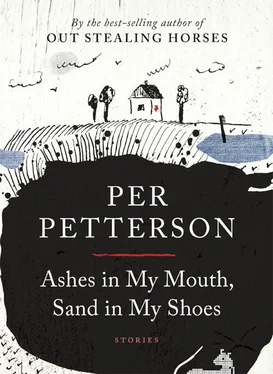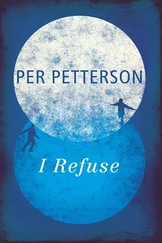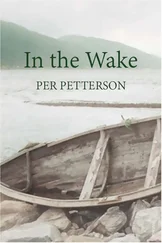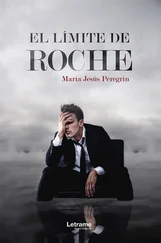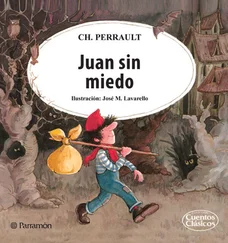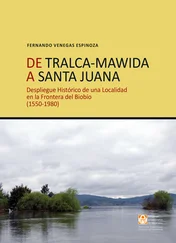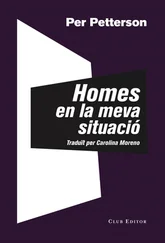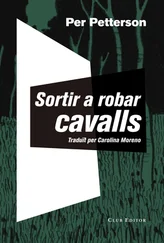Per Petterson
Ashes in My Mouth, Sand in My Shoes
To my father, Arthur Petterson, 1911–1990
Dad had a face that Arvid loved to watch, and at the same time made him nervous as it wasn’t just a face but also a rock in the forest with its furrows and hollows, at least if he squinted when he looked. Of course you can be a bit unsettled if you look at your dad and suddenly there is a large rock where his head used to be.
Those who liked to comment on this kind of thing said that the two of them looked a lot like each other and that was perhaps what made Arvid most nervous, but when he glanced in the mirror he didn’t understand what they meant for Dad was blond, and all Arvid saw in the mirror was two round cheeks and plainly Dad did not have them.
But most of the time Dad was just Dad, someone that Arvid liked and dared to touch. Uncle Rolf said that Dad’s face had a determination that couldn’t determine where to go, but Uncle Rolf had always been a big mouth.
Dad worked in a shoe factory and had gone up through the ranks at Salomon Shoes at Kiellands Square. He was a skilled worker now and had just become a foreman when the Norwegian shoe industry capsized and sank like the Titanic. After that he moved from factory to factory, as if they were ice floes in the Bunne Fjord in spring, further and further away, and in the end he found a job on the island of Fyn in Denmark. It was a responsible post for a worker, in the office for half the week, recognition, Mum said, let’s be clear about that, and she seemed to like the thought of returning to the old country.
He was away for six months, and Arvid and Gry and Mum tiptoed around waiting for the signal to follow. Arvid had slowly begun to say goodbye to the things around him: his room with the model planes hanging from the ceiling, the bullfinch tree down by the dustbin and the secret path beneath the bushes on the Slope. But then one evening Dad was standing in the hall with a crumpled smile and a large suitcase in his hand and he said:
‘Sorry, folks, but I’ve never been much of a paper pusher.’
He’d had a pint or two, and Arvid could see that straight away.
They were all so bewildered they never got round to asking about anything except what was in the suitcase. When it turned out it was full of marzipan and whisky and Toblerone and Elephant beer from the duty-free shop on the Danish ferry, they crowded into the kitchen like a pack of hungry pups. It was a small kitchen, so the children had to stand while the adults sat around the table with a dram to consider the situation in an adult way. And of course Uncle Rolf had to have his say. It was a mystery to Arvid why he came round so often, didn’t he have his own place to live?
‘The thing is, Frank, you don’t have any social aspirations, and you know it!’ said Uncle Rolf, and the kitchen went so quiet you could hear the rain on the windowpanes. It was such a quiet, sneaky pitter-patter that no one had heard it until then. Outside, it was November and dark, the night was full of nasty naked trees scraping against the walls just like in Captain Miki and the Man with the Evil Eye. Arvid stood with his backside against the sink in the kitchen, where just now it had been so cosy. He had a half-eaten Tom’s marzipan log in his hand and hardly dared sniffle, even though he had a bad cold.
No one in the kitchen really knew what ‘social aspirations’ meant, it had to be a new expression, but Uncle Rolf had read a few books and thought he was damn clever. Anyway, it was not a compliment, Arvid could see the irritation crawling around his dad’s face, and it was contagious for he could feel himself getting upset.
‘ Skål , Rolf, and let’s hope the social aspirations don’t swell your head as you’ve got so many of them,’ Dad said, and his eyes were narrow and tired too, when he knocked back what was left in his glass. And then he got up and went to bed.
Uncle Rolf sat twirling his glass between his fingers, but no one talked to him any more, and Mum began to wipe the table, so he drank up and went home to his flat in Vålerenga. The flat was full of clutter and dust balls everywhere, and Allers and Reader’s Digest and Norsk Ukeblad strewn across the coffee table, and whenever Arvid came to visit him he had to help with the dishes even though he never did that at home. Uncle Rolf didn’t have a wife, and who would want his sort, Arvid said to himself.
Uncle Rolf worked at the Jordan brush factory in Økern. There he stood at a machine all day making sure the bristles were properly inserted into the holes of the red, green and blue toothbrushes. Such a waste of time, Arvid thought, making toothbrushes, day in, day out.
But two weeks after Dad returned home from Denmark, he was standing at his own machine, next to Uncle Rolf’s. Uncle Rolf had got him the job. It was unbearable.
And on top of that Uncle Rolf liked his job, even though he was always reading the Reader’s Digest and that sort of magazine and telling them how he was going to start up his own business: patents, imports and rubbish like that. He liked talking, there was nothing he loved more than the sound of his own voice when he was speaking about all the things he was going to do. And though Arvid was so small that no one thought he understood a thing, he did understand that Uncle Rolf would be making toothbrushes for the rest of his life. Not that he talked that much about toothbrushes, everyone must have known that there were limits to how much you could say about something as stupid as toothbrushes.
Shoes, on the other hand, there was a lot to say about them. Gym shoes, smart shoes, ladies’ shoes, children’s shoes, ski boots, riding boots. Dad talked a lot about shoes, and he knew what he was talking about. But now it was over. Now you couldn’t even say the word ‘sole’ aloud. If you did Dad would lose his temper.
‘In this house we wear shoes, we don’t talk about them, is that clear!’ he said, and then there was silence, although Arvid could easily see that his mother was annoyed by all the detours they had to take.
Downstairs in his cellar room the piles of toothbrushes were mounting up. They were the seconds that Dad had been given at work, with handles that were too short or bristles missing. Soon they would have enough toothbrushes to last them into the next life, if such a thing existed, but Dad didn’t believe that and neither did Mum. Arvid was not so sure, because Gran in Denmark said something different and she ought to know. She went to church every Sunday, and she composed hymns.
Arvid hated those toothbrushes inside their plastic bags, sorted by colour. They took up space and were pushing the shoe samples out of the closet, and the rolls of leather and the lasts and the shoemaking tools Dad used to repair their shoes with when the toes were yawning or a heel fell off. Arvid used to sit on a stool watching, and there was the good smell of leather and his dad’s back, that was fine to look at when he was working.
‘What are you doing now, Dad?’
‘I’m experimenting,’ they might say to each other, and Dad did that a lot, spent time pondering all sorts of problems that there must have been with shoes.
Now that too was over. And one day Arvid saw his dad carrying out the rolls of leather and the shoe samples and stuffing them into the dustbin by the bullfinch tree. Then he was back down in the cellar, and there was a terrible pounding on the stairs, and after a while he came up, panting, with a huge basket of shoe lasts, lasts of all sizes, elegant and shiny with their varnish, and they had been such a wonderful sight on the shelf in the lumber room, where they used to be, and they seemed to be dancing.
Читать дальше
